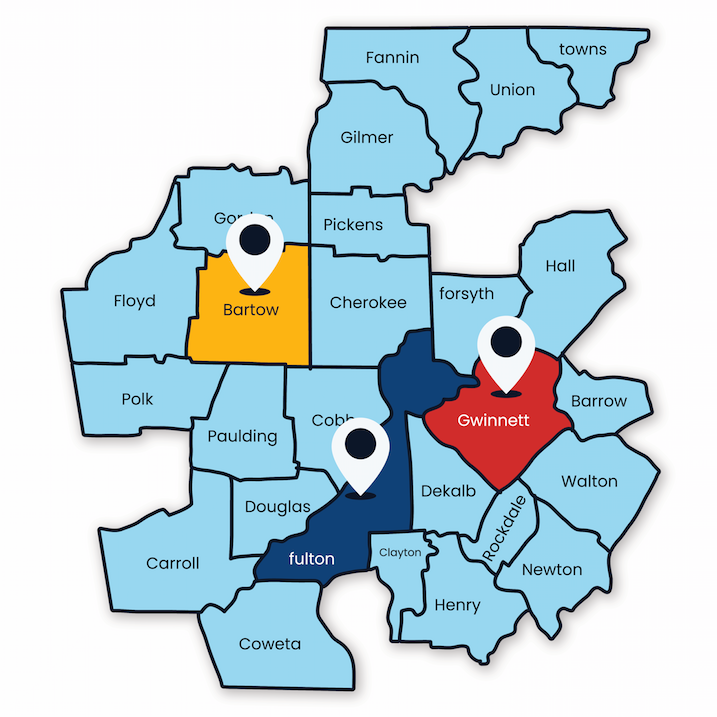Understanding Medication Assistance & Management in Hospice Care
Medication assistance and management are critical components of hospice care, focusing on providing patients with relief from pain, discomfort, and other symptoms related to life-limiting illnesses. For patients nearing the end of life, managing medications effectively is essential to maintaining their quality of life and ensuring they remain comfortable in their final days.
In hospice care, our team of caregivers and board-certified physicians work closely with patients and their families to create a comprehensive medication plan tailored to the patient’s unique needs. This includes the careful selection, dosage, and timing of medications to manage symptoms like pain, nausea, anxiety, and more. Proper medication management helps prevent unnecessary suffering while ensuring the patient’s comfort is prioritized.
Symptoms That Indicate Medication Management is Necessary
Medication management is essential when patients experience complex or severe symptoms that require careful attention. Some common signs that medication assistance may be needed include:
- Persistent or uncontrolled pain
- Frequent nausea or vomiting
- Difficulty breathing or respiratory distress
- Anxiety, agitation, or emotional distress
- Restlessness or trouble sleeping
- Side effects from existing medications
- Confusion related to medication schedules or interactions
Why Medication Assistance is Important
For patients in hospice care, managing medications can become increasingly challenging as their condition progresses. Many patients are prescribed multiple medications to address various symptoms, and without professional assistance, it can be difficult to ensure that these medications are administered safely and effectively. Mismanagement of medication, whether through missed doses, incorrect usage, or interactions between drugs, can lead to worsened symptoms, unnecessary hospitalizations, or diminished quality of life.
Medication assistance is crucial for ensuring that patients receive the right medications at the right time and in the correct dosage. By offering professional support, hospice care teams help reduce the risk of complications from medication mismanagement, while also relieving the burden on family caregivers who may feel overwhelmed by the complexity of managing their loved one’s medication regimen. This ensures a safer, more comfortable care experience for the patient.
The Medication Management Process in Hospice Care
Medication management in hospice care follows a structured and personalized approach, ensuring that each patient’s needs are met. The process includes the following steps:
- Initial Assessment: A thorough review of the patient’s current medications, health conditions, and symptoms is conducted by the hospice care team.
- Creation of a Care Plan: A customized medication plan is developed, tailored to the patient’s specific symptoms and medical condition, focusing on comfort and symptom control.
- Administration of Medications: Medications are administered according to the care plan, either by hospice caregivers or with guidance for family members.
- Monitoring for Effectiveness: The patient’s response to medications is closely monitored, and adjustments are made as necessary to ensure optimal comfort.
- Managing Side Effects: Any side effects or complications from medications are addressed promptly, with changes made to the care plan as needed.
- Education for Caregivers: Family members are provided with guidance on how to administer medications and what to watch for in terms of side effects or changes in the patient’s condition.
Preventing Medication Errors and Ensuring Safe Use
Medication management in hospice care not only focuses on providing the correct medications but also on preventing errors that can lead to unnecessary complications. For patients with complex medical conditions, it is essential to have a care team that understands the potential interactions between various drugs and is able to adjust medications accordingly. This proactive approach helps to avoid over-medication, under-medication, and dangerous drug interactions.
Additionally, preventing medication errors helps to reduce the emotional and physical stress on family caregivers. By relying on a professional hospice team to handle medication administration and management, families can focus on spending quality time with their loved ones rather than worrying about potential medication mistakes.
Optimizing Quality of Life Through Symptom Control
Medication assistance and management play a central role in optimizing the comfort and well-being of hospice patients. By ensuring that symptoms like pain, nausea, and anxiety are effectively controlled, patients can experience a better quality of life during their final days. Proper symptom management allows patients to remain as comfortable as possible, with minimal physical suffering.
For family members, managing a loved one’s medications can be stressful and confusing, particularly when multiple medications are involved. Hospice medication management takes this burden off families, providing professional oversight and ensuring that medications are administered safely and accurately. This allows families to focus on offering emotional support and companionship rather than navigating the complexities of medication schedules.
Frequently Asked Questions
Who manages the medications in hospice care?
Medications are managed by a team of hospice caregivers, including nurses and physicians, who develop a care plan and oversee administration.
Can family members administer medications?
Yes, family members can administer medications with guidance from the hospice care team. Education and support are provided to ensure medications are given safely.
What types of medications are commonly used in hospice care?
Common medications include pain relievers, anti-nausea medications, anti-anxiety drugs, and breathing treatments, all tailored to the patient’s needs.
How often are medications adjusted?
Medications are adjusted as needed based on the patient’s symptoms and response to treatment, ensuring that comfort is always prioritized.
Is medication management covered by insurance?
Yes, medication management is typically covered by Medicare, Medicaid, and most private insurance plans as part of hospice care.
Compassionate Medication Management for Hospice Patients
Medication assistance and management are vital services that ensure hospice patients receive the right medications to control their symptoms and improve their quality of life. By providing expert guidance and support, hospice care teams help patients remain comfortable and safe while relieving families of the burden of managing complex medication regimens.
If you or a loved one could benefit from medication management services as part of hospice care, reach out to us today. Our compassionate team is ready to offer the support you need to ensure the best possible care experience.

